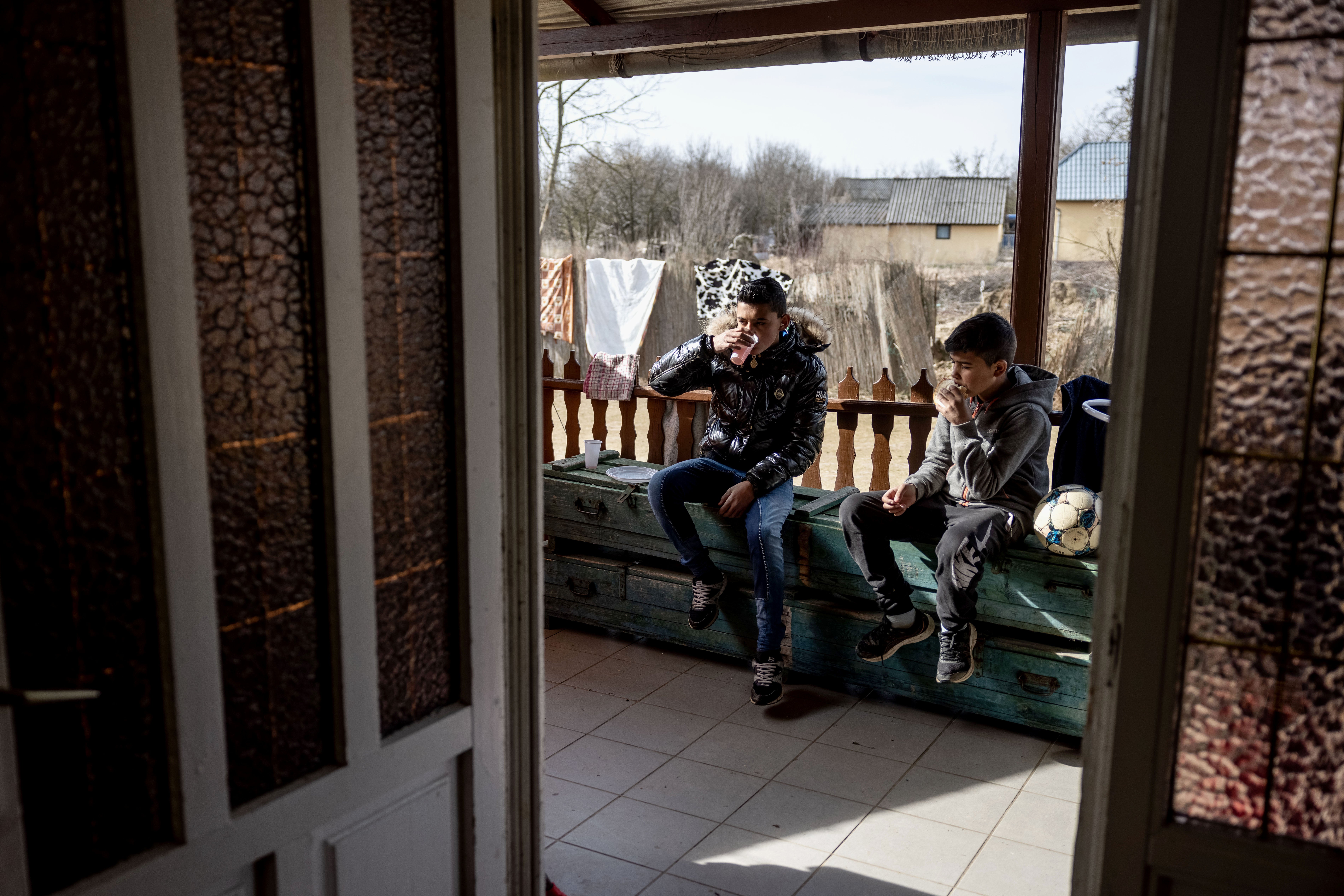
Roma refugees who sought shelter across the border are returning to war-torn Ukraine following poor treatment by host countries in Europe, rights groups have claimed.
While there are no exact figures, many of the estimated 50,000 Roma who became refugees when Russia invaded Ukraine in February are packing their bags and heading home just weeks after they fled.
Some went back when they heard that their areas weren’t being targeted by Russian troops, explained Jonathan Lee, an Advocacy and Communications Manager at the European Roma Rights Centre (ERRC).
“Others have returned because they faced worse conditions in their host country and little assistance from public authorities so were unable to settle,” said Lee.
Armed with little more than the clothes on their backs and weighed down by a long history of discrimination and deadly persecution in European countries, Romani refugees are considered some of the most vulnerable victims of this war.
“From the reports we get week in week out, it is the norm that Roma will face neglect, verbal abuse, or unequal treatment in things like the provision of emergency food and medicine, accommodation, and transport,” Lee told The Independent.
And while the ERRC says they have yet to see evidence of systematic human rights abuses of Romani refugees by authorities, “the scale of mistreatment by many individuals and groups in different countries has been staggering,” said Lee.
Anzhelika Bielova, a Roma activist and volunteer at the ERRC, said she had received a string of reports of ill-treatment from several European countries.
From sub-standard food and living arrangements in Moldova, to being kicked out of welcome centres and sent to remote cities in the Czech Republic and receiving less aid than non-Roma families, she told The Independent.
The scale of mistreatment by many individuals and groups in different countries has been staggering
According to Bielova discrimination has been a key factor in people’s decision to return to a war zone, despite the obvious dangers.
In addition to this, the community’s “low level of education … creates inability to find a job, find accommodation, get help,” she added. “Therefore, people are forced to return to danger, but [it’s] home, where for them everything is clear and there is a normal life.”
Prior to being faced with the challenges of being a Roma refugee in a European country, many members of the community without passports feared they wouldn’t even make it across the border to safety.
“Whilst EU countries may provide temporary IDs for stateless people requesting asylum – in practice this often depends on the border crossing, or even the border guard on duty, whether this will happen or not,” said Lee.
According to the United Nations between four and eight percent of the 400,000 Roma in Ukraine don’t have passports.
“Many Roma without documents instead crossed into Moldova (which opened its border completely) but have faced segregation from non-Roma there in refugee reception centres in poor living conditions,” he added.
But long before Russian troops streamed into neighbouring Ukraine and displaced more than 11 million people, the Roma community had come face to face with violent discrimination.
As recently as 2018 Human Rights Watch reported that masked attackers had chased women and children with rocks and pepper spray after burning down tents in a Roma settlement in Kyiv.
In 2021 members of a radical group carrying flaming torches went door to door in the city of Irpin calling for violence against local Roma residents in response to a reported attack on a man by two Roma teenagers.
After years of discrimination war has exacerbated the already precarious situation of Romani-Ukrainians.
“These infinite number of small incidents on a wide scale really highlights how antigypysism in European societies is so deeply embedded and does not fade away simply because a war has broken out,” said Lee.

Today, tens of thousands of members of the Roma community find themselves far from home, in countries that have never welcomed Roma people and often worked to marginalise them.
“We already hear of Roma not being genuine refugees – there are accusations that Roma are mere economic migrants taking advantage of humanitarian aid. This is the same argument that was used against Romani refugees escaping the war in Kosovo over 20 years ago; it is the same accusation levelled at North Africans crossing the Mediterranean in dinghies,” explained Lee.
“It is a dangerous rhetoric which could lead to the very real danger of human rights violations against Romani refugees in host countries, particularly those bordering Ukraine where large numbers of marginalised Roma are staying.”
The Independent has a proud history of campaigning for the rights of the most vulnerable, and we first ran our Refugees Welcome campaign during the war in Syria in 2015. Now, as we renew our campaign and launch this petition in the wake of the unfolding Ukrainian crisis, we are calling on the government to go further and faster to ensure help is delivered.
To find out more about our Refugees Welcome campaign, click here. To sign the petition click here. If you would like to donate then please click here for our GoFundMe page







